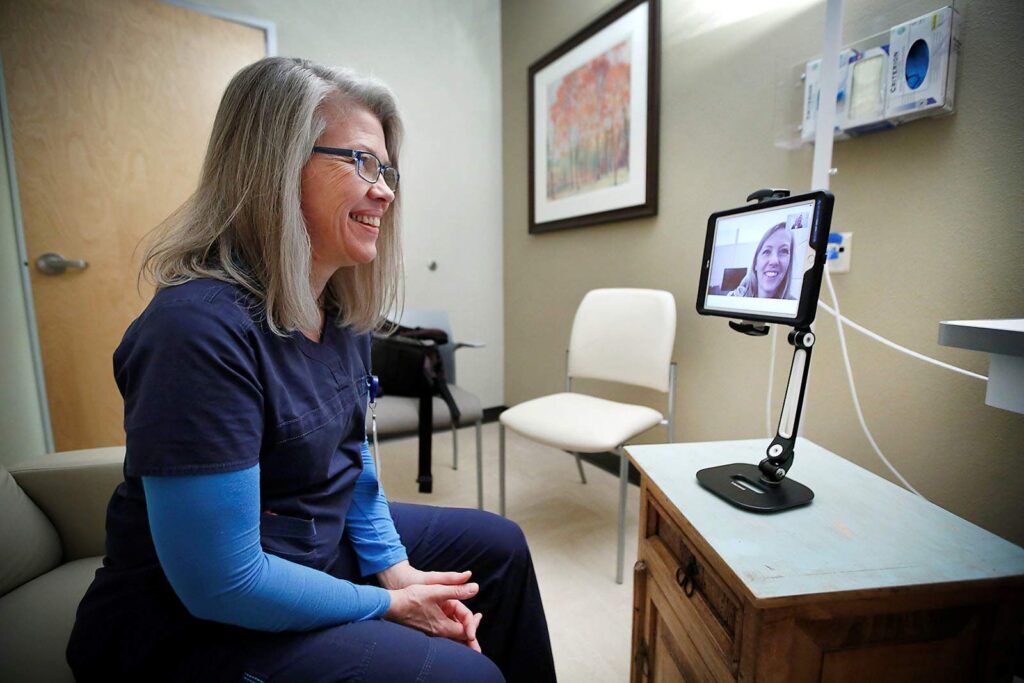Introduction:
In today’s healthcare landscape, administrative tasks consume a significant amount of physicians’ time, leaving less room for patient care. Virtual Medical Assistant Services have emerged as a reliable solution, enabling providers to optimize workflows, minimize burnout, and improve patient satisfaction. These assistants handle tasks ranging from appointment scheduling and medical billing to patient communication and electronic health record (EHR) management.
With rising demand for telehealth and digital healthcare solutions, VirtualCare Assistants are revolutionizing how clinics, hospitals, and private practices operate. According to the American Medical Association (AMA), more than 60% of healthcare providers believe virtual healthcare support increases efficiency and improves patient access.
What Is a Virtual Medical Assistant?
A Virtual Medical Assistant (VMA) is a trained professional who works remotely to support healthcare providers with both administrative and clinical tasks. Unlike in-house staff, they work offsite—leveraging secure platforms and communication tools to ensure seamless integration into medical practices.
Their roles may include:
- Patient intake and registration
- Appointment scheduling and reminders
- Insurance verification and prior authorizations
- Medical billing and coding
- Prescription refills and follow-ups
- Managing EHR documentation
- Patient communication and telehealth support
By outsourcing these responsibilities, healthcare professionals can focus on providing quality care while reducing operational costs.

Why Choose Virtual Medical Assistant Services?
Healthcare providers across the U.S. are recognizing the value of outsourcing administrative tasks. Here are the top benefits:
- Cost-Effective Solutions – Hiring a virtual medical assistant reduces overhead expenses, including payroll, office space, and employee benefits.
- 24/7 Availability – Virtual assistants can operate across different time zones, providing round-the-clock coverage.
- HIPAA Compliance – Professional VMAs are trained in HIPAA regulations, ensuring patient data security.
- Improved Patient Experience – Patients receive timely responses, faster scheduling, and proactive follow-ups.
- Reduced Burnout – Physicians can focus on patient care instead of paperwork.
👉 For providers seeking virtual reception support, check out our dedicated service page on Virtual Medical Receptionist.
Core Services Offered by VirtualCare Assistants
1. Virtual Reception and Patient Scheduling
A Virtual Medical Receptionist manages incoming calls, appointment bookings, and patient inquiries. This ensures your front office runs smoothly without hiring additional staff.
2. Insurance Verification & Authorizations
Dealing with insurance companies is time-consuming. Virtual assistants verify patient coverage, process prior authorizations, and minimize claim denials.
3. Medical Billing and Coding
Accurate billing is crucial for revenue cycle management. VMAs trained in CPT, ICD-10, and HCPCS coding systems ensure error-free claim submissions.
4. EHR Management
Virtual assistants update and maintain patient records, ensuring providers have accurate information during consultations.
5. Telehealth Support
As telemedicine grows, VMAs help coordinate virtual visits, troubleshoot patient access issues, and follow up after appointments.
6. Patient Engagement and Communication
From appointment reminders to wellness follow-ups, virtual assistants ensure consistent and compassionate patient engagement.
Who Can Benefit from Virtual Medical Assistant Services?
- Private Practices – Reduce workload and improve patient flow.
- Hospitals & Clinics – Streamline operations with remote staff.
- Dentists & Chiropractors – Manage billing, scheduling, and records.
- Behavioral Health Providers – Securely manage telehealth sessions and patient communication.
- FQHCs & CHCs (Federally Qualified Health Centers & Community Health Centers) – Gain reliable support for underserved patient populations.
Special Entities and Real-World Impact
- Centers for Medicare & Medicaid Services (CMS) – Emphasizes accurate billing and compliance.
- HIPAA (Health Insurance Portability and Accountability Act) – Ensures patient data confidentiality.
- American Telemedicine Association (ATA) – Advocates for telehealth integration supported by virtual assistants.
These entities highlight the importance of compliance, accuracy, and innovation—core aspects that VirtualCare Assistants deliver.
High-Authority References
- American Medical Association (AMA)
- Centers for Medicare & Medicaid Services (CMS)
- American Telemedicine Association (ATA)
- HealthIT.gov

Why VirtualCare Assistants Stand Out
At VirtualCare Assistants, we provide customized, HIPAA-compliant solutions tailored to your practice needs. Unlike generic outsourcing agencies, our team specializes exclusively in healthcare, ensuring accuracy, security, and efficiency.
By choosing us, providers gain:
- U.S. healthcare–trained VMAs
- Bilingual support for diverse patient communities
- Dedicated account managers for seamless integration
- Competitive pricing without compromising quality
Future of Virtual Medical Assistants in U.S. Healthcare
The healthcare industry is rapidly adopting AI-powered solutions, telemedicine, and remote staffing. According to Fierce Healthcare, the U.S. virtual healthcare market is expected to surpass $250 billion in the coming years.
Virtual assistants will continue to play a vital role in:
- Enhancing telehealth adoption
- Supporting population health management
- Improving value-based care delivery
This makes Virtual Medical Assistant Services an essential investment for providers who want to stay ahead in the digital healthcare era.
FAQs about Virtual Medical Assistant Services
Q1. Are Virtual Medical Assistants HIPAA-compliant?
Yes. Reputable providers like VirtualCare Assistants train their staff in HIPAA protocols, ensuring patient data remains confidential.
Q2. How much does a Virtual Medical Assistant cost in the U.S.?
On average, VMAs cost 50–70% less than hiring a full-time, in-house staff member. Pricing depends on services, experience, and hours required.
Q3. Can Virtual Medical Assistants handle clinical tasks?
Yes. Depending on training, some VMAs assist with clinical documentation, telehealth coordination, and patient triage support.
Q4. Do VMAs integrate with existing practice management software?
Absolutely. They are trained in tools like Epic, Athenahealth, Kareo, eClinicalWorks, and NextGen.
Q5. How do I hire a Virtual Medical Assistant?
Simply reach out to providers like VirtualCare Assistants, discuss your needs, and customize a plan tailored to your practice.
Conclusion
Virtual Medical Assistant Services are transforming the U.S. healthcare system by reducing costs, enhancing patient satisfaction, and streamlining daily operations. For providers looking to stay competitive in a digital-first healthcare environment, VirtualCare Assistants offer the expertise and flexibility you need.
Whether you run a solo practice or a large healthcare facility, outsourcing to a Virtual Medical Assistant is the smartest step toward efficiency, compliance, and better patient.
